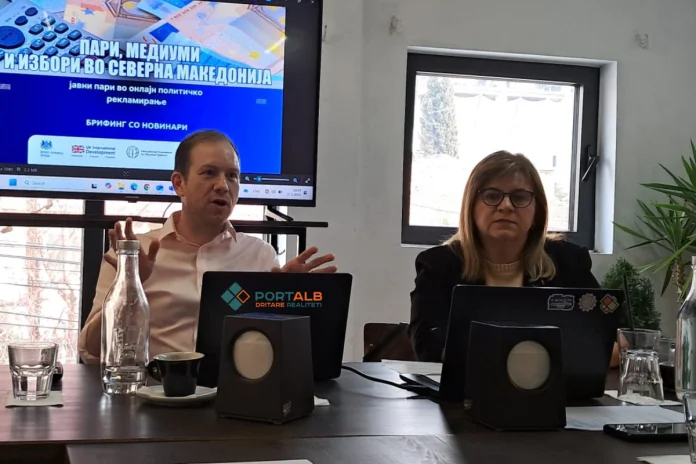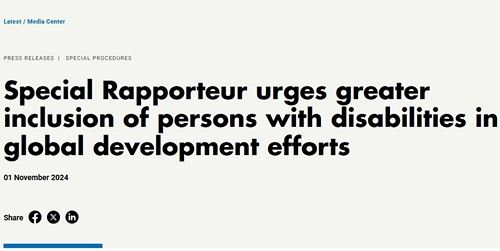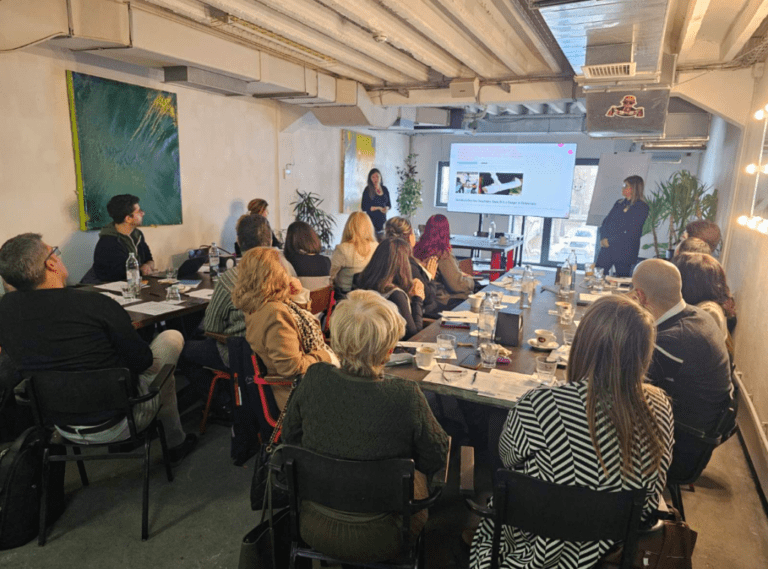Power: There are several ways to prevent corruption in online media funding through government money
Expert Sam Power has revealed that state funding of media outlets during the election campaign is not entirely proportional.
North Macedonia has several ways to prevent corruption in online media funding through government money.
British election financing expert and University of Bristol lecturer Sam Power presented the key findings of the project “Money, Media, and Elections in North Macedonia” today at a briefing with journalists in Skopje. The event was organized by the Metamorphosis Foundation and the International Foundation for Electoral Systems (IFES), writes Portalb.mk
Expert Sam Power has found that state funding of media outlets during the election campaign is not entirely proportionate. According to him, there is weak regulatory oversight, transparent in theory but not in practice.
In many areas, North Macedonia aligns with EU standards, except when it comes to indirect state funding through paid political advertising. The country’s media funding system mirrors that of countries like Bhutan, Kenya, Peru, and Thailand, as noted by Power. In contrast, countries such as Brazil, the Comoros, and Switzerland have banned political advertising altogether, while Spain and the United Kingdom offer free airtime for political content.
Currently, there is no specific body in North Macedonia to oversee online portals. Therefore, Power believes that if we give people the opportunity to behave corruptly, we should not be surprised when they do so.
“There is a high probability that state funds will be misused by politicians in connection with online portals. Money is essential, but it has the power to distort democracy,” Power said.
Based on his findings, expert Power outlined 11 recommendations based on which he aims to regulate the transparency of media financing during elections:
1. Review the distribution criteria for receiving (direct and indirect) state support, so that it is linked to votes and seats secured in previous elections, in line with EU standards.
2. Ensure timely allocation of funds and transparency of the methodology for allocating funds and designate a body responsible for disbursements.
3. To prevent established political parties from becoming too dominant, official broadcasts (offline and online) should be balanced according to the Irish model.
4. Appoint a body (likely AVMS) to monitor the activity of online portals and ensure compliance with the rules.
5. There should be no shared oversight responsibilities and each organization in the regulatory ecosystem should have a defined role in overseeing elements of election/political financing.
6. Consolidation and harmonization of regulatory responsibility between AVMS, SPC, SEC and SAO.
7. Building the integrity of the electoral process by investing in the right resources in the regulatory ecosystem.
8. Recommendation to build transparency in the political system of North Macedonia and make election expenditure payments available in the form of an easily searchable and updated database.
9. In the longer term, implementing some form of gender-specific mandates on how parties use public funds–whether by mandating that a certain percentage be dedicated to promoting women candidates, by requiring that a portion of funds be earmarked for promoting women candidates, or by offering appropriate incentives.
10. Amend the Electoral Code to explicitly prohibit hate speech in paid political advertising.
11. Introducing provisions in the Law on Financing of Political Parties to ensure fair distribution of funds for inclusive campaigns.
We remind you that the Metamorphosis Foundation investigated public funds for election campaigns on online portals. The survey was conducted on 30 selected online information portals, which is more than 10% of the total number of registered websites (251) to the State Election Commission for paid political advertising. In the period from 15 April to 10 May 2024, a total of 13,645 posts about the elections were monitored.
The survey showed that most of the monitored portals were focused on the main parliamentary parties/coalitions, while reporting on smaller parties was limited.
The research also recommends strengthening professional standards for journalists by supporting investigative and analytical reporting through specialized training programs for journalists on advanced investigative skills, ethical guidelines, and best practices in investigative journalism.
Source: Meta.mk











